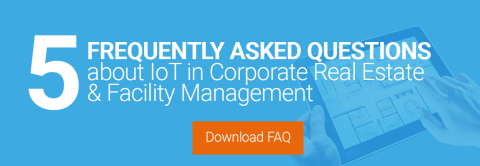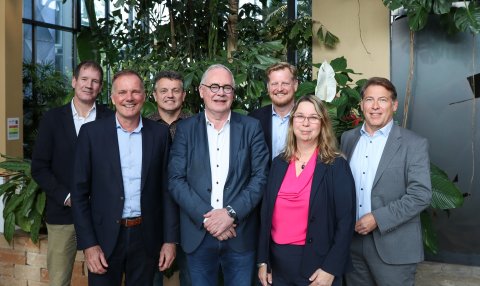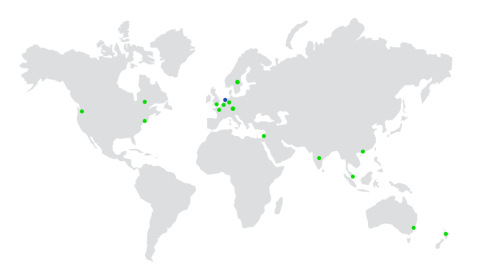
As we have said before, the “Internet of Things” and ”Smart Buildings” have been buzzwords in the industry for a while. The challenge is to make it practical: how can real estate and facility managers use internet-connected devices to make the workplace more cost efficient, effective, and customer-oriented? The challenge for service providers specifically is how to support their clients in this process.
To answer this question, Planon has already worked with customers to develop and implement several basic uses for IoT, such as measuring space occupancy in real time and using sensors to measure CO2.
Sensor data is currently used to trigger simple processes, such as creating a maintenance order if temperature falls below a certain value, but what if we can transform this data into intelligent information to make certain processes better and more efficient through the addition of machine learning or business intelligence?
For facility management service providers, this intelligent information has the added benefit of supporting new business models, creating new services and increasing revenue. Let’s take a look at some possible scenarios.
Business model 1: Predictive scenarios
Most contracts between service providers and their clients contain a fixed amount of work for a fixed price. For example, a contract might say that all spaces must be cleaned daily.
The data from internet-connected assets allows service providers to shift from activity-based contracts to quality based contracts. In this scenario, only those spaces that had been used that day would be cleaned. This saves the service provider money while the client gets the same or possibly better quality level of service for the same price.
Business model 2: Operational services
The second business model from IoT generates additional revenue through extra work and by being a strategic partner.
Service providers can use intelligent data to predict the value of maintenance activities or replacing assets. Are the savings greater if an organization replaces certain assets now or waits a little longer? Should they advise their client to continue renting a certain building, when data about the building’s occupancy rate, environmental factors and maintenance status is combined together?
In addition, service providers can more easily identify the extra projects that truly benefit their clients. This can either be additional work on top of an existing contract or an arrangement where the service provider receives a bonus for projects that save the client money in the long-term. In both scenarios, the service provider increases profit and the client sees cost savings.
This business model is based on the idea that the service provider can commercialize data and information back to their clients, instead of delivering just operational services.

Business model 3: Additional services for the end user
The third business model focuses on the end-user. Many service providers consider themselves to have two clients: the business that signed a contract and the users of that client’s buildings and assets. Because the satisfaction of both will influence renewing a contract, service providers need to consider the wishes of this end consumer. The Internet of Things allows these service providers to adjust services based on individual preferences and behaviour to ensure customer retention and expansion. Business to Business (B2B) transforms to Business to Business to Consumer (B2B2C).
The underlying technology is already present, but it takes effort to incorporate and reap the benefits of these new business models. Service providers are often busy with their daily activities, and even the most innovative service providers can use an external partner to give them a push in the right direction.
Which IoT use cases are you investigating? Which business models are the most appealing?





















